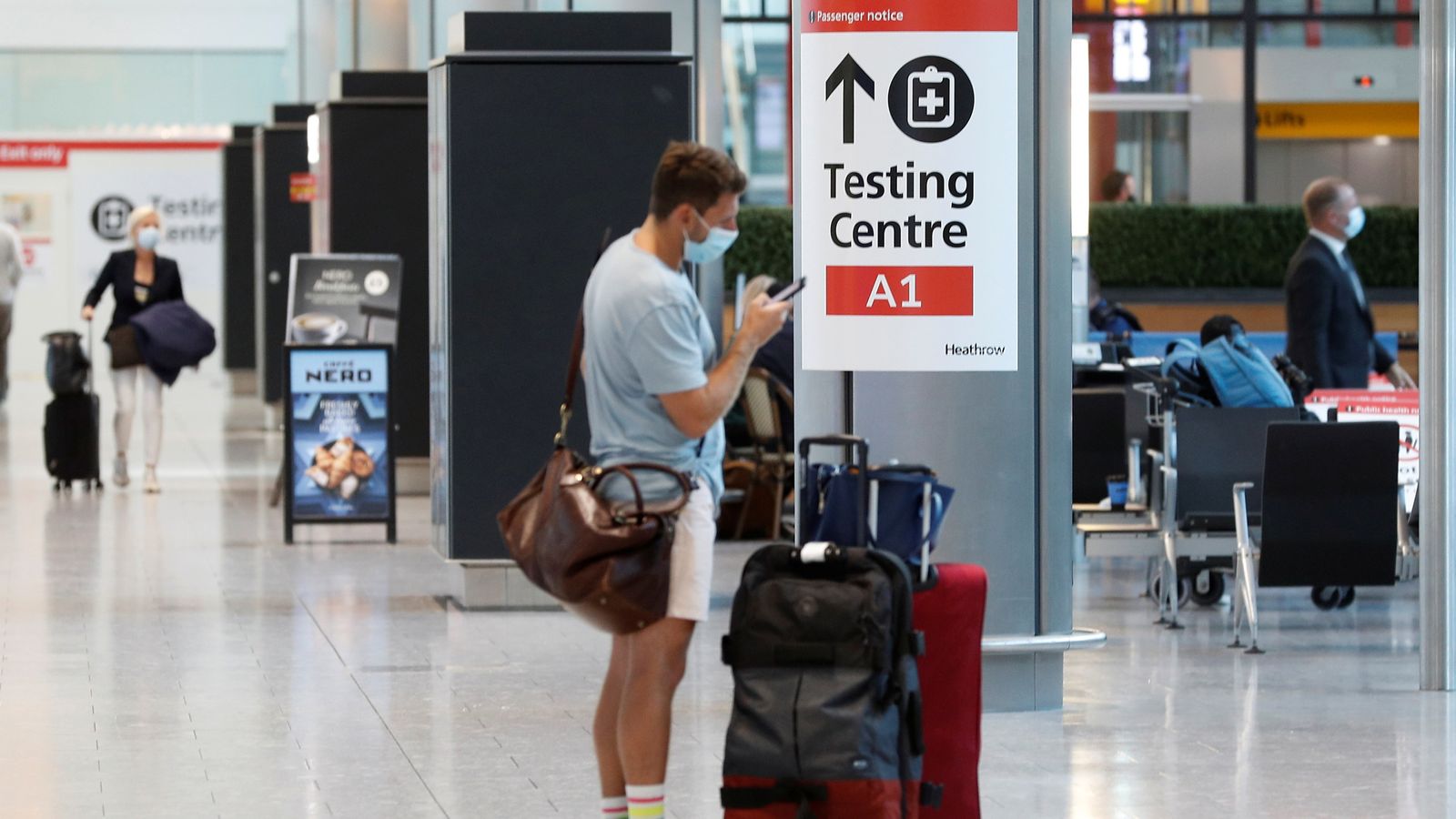The UK has recorded a further 29,312 coronavirus infections and 119 more deaths in the latest 24-hour period.
This compares with the 21,691 COVID-19 cases and 138 deaths reported yesterday.
This time last week the UK reported 27,734 cases and 91 deaths.
Live COVID updates from the UK and around the world
Since the start of the pandemic, there has been a total of 5,952,756 coronavirus cases in the UK, and 130,000 people have died within 28 days of a positive COVID test.
Some 29,508 people received their first dose of a vaccine yesterday, taking the overall total to 46,928,033.
And 143,002 were given their second jab, meaning 38,733,334 are now fully inoculated – 73.2% of the UK’s adult population.
Approximately 1.4 million teenagers will now be offered a jab after the government announced it was expanding the vaccination programme.
Professor Wei Shen Lim, COVID-19 chair for the Joint Committee on Vaccination and Immunisation (JCVI), said in a statement: “After carefully considering the latest data, we advise that healthy 16 to 17-year-olds are offered a first dose of Pfizer-BioNTech vaccine.
“Advice on when to offer the second vaccine dose will come later.
“While COVID-19 is typically mild or asymptomatic in most young people, it can be very unpleasant for some and for this particular age group, we expect one dose of the vaccine to provide good protection against severe illness and hospitalisation.”
Please use Chrome browser for a more accessible video player
It was already available to children aged 12 with underlying health conditions, or those living with an immunosuppressed person.
It comes as a study of more than 98,000 people found those who have been double jabbed are half as likely to be infected with coronavirus.
The React trial, which randomly selected people in England, found that if a fully vaccinated person comes into contact with a person who has COVID, only one in 25 (3.84%) would catch the virus.
Even then, their case would generally be milder than it would have been, had they not had the jab.
Steven Riley, professor of infectious disease dynamics at Imperial College London, said the study showed that every person who gets vaccinated is “taking a decent chunk of potential transmission out of what may or may not happen in September”.
Scientists warned there is a greater chance of a winter spike if children are not vaccinated.
Peter Openshaw, professor of experimental medicine at Imperial College London said the virus is currently “flourishing” in younger age groups.
Please use Chrome browser for a more accessible video player
“They are a major source of circulation of the virus at the moment and there’s a big benefit to society in vaccinating those younger age groups,” he said.
The latest estimates from the Office for National Statistics (ONS) shows the increase in the number of adults in the UK who are likely to have antibodies is showing signs of slowing down.
More than nine in 10 adults in all nations and regions have antibodies – but once infected or vaccinated, the length of time these remain at detectable levels in the blood is not fully known.
.@heavenLGBTclub will be the UK's first nightclub to be turned into a pop up vax centre! 💙Nightclubs have always been part of the COVID solution, and I'm really proud to be working with @NHSEnglandLDN @CityWestminster and @JeremyJoseph to make this happen. #GetVaccinated https://t.co/36mGUME2Ne
Meanwhile, one of London’s most popular LGBT+ venues will become the UK’s first nightclub to be turned into a pop-up vaccination centre.
More than 1,000 doses of the Pfizer jab will be available at Heaven nightclub in central London from midday until 9pm on Sunday, and owner Jeremy Joseph has urged people to come along and get vaccinated.
Follow the Daily podcast on Apple Podcasts, Google Podcasts, Spotify, Spreaker.
Elsewhere, in Indonesia, deaths have soared past 100,000, as the country struggles to cope with a wave fuelled by the Delta variant.
The death toll reached 50,000 at the end of May, and has doubled in just nine weeks.






















